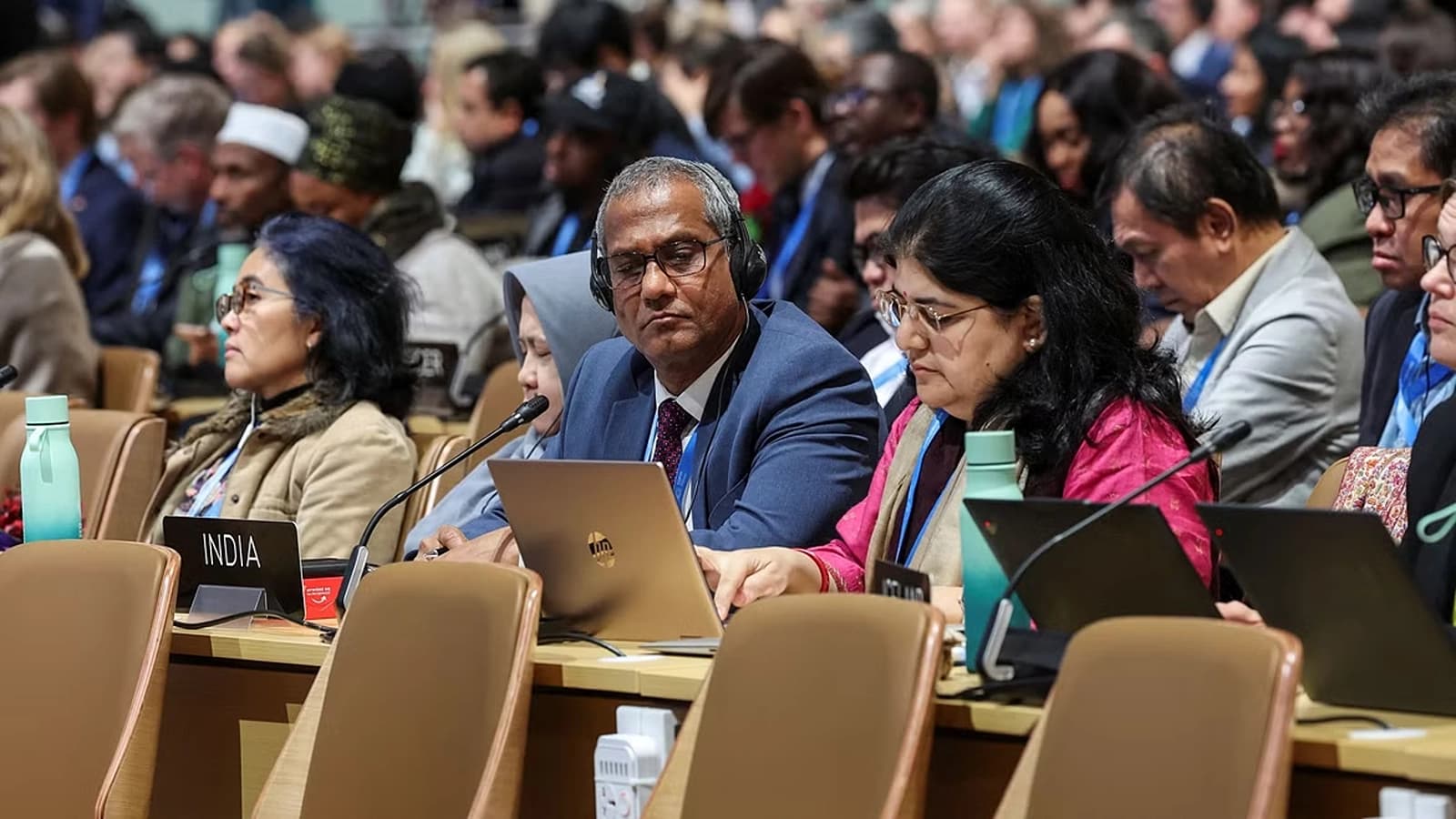India rejects UN Climate Deal calls INR 25 50000 Crores insufficient

By Vijaya Laxmi Tripura
India has strongly criticized the recently adopted climate finance deal at the UN Climate Change Conference (COP29) in Baku, Azerbaijan, calling it an “optical illusion” that falls drastically short of addressing the needs of the Global South.
The agreement, which outlines an INR 2550000 Crores annual spending goal for global climate action, aims to scale up to at least $1.3 trillion by 2035, but has faced backlash from several developing nations.
Chandni Raina, an advisor at India’s Finance Ministry and one of the country’s key negotiators at COP29, dismissed the deal as insufficient and inequitable. “The proposed goal will not solve our issues.
The amount suggested for mobilization is woefully insufficient; it’s a meager sum that won’t enable effective climate action,” Raina stated.India’s criticism underscores broader dissatisfaction among developing nations, which argue that the $300 billion target does not reflect the scale of funding required to address the catastrophic impacts of climate change in vulnerable regions.
With many countries in the Global South grappling with extreme weather events, rising sea levels, and desertification, the financial gap remains significant.
Estimates from various international studies suggest that at least $5.1–6.8 trillion will be needed for effective climate action by 2030-a figure far exceeding the new collective quantified goal (NCQG) agreed at COP29.
The deal stipulates that developed nations will take the lead in providing the financing, with developing countries contributing voluntarily. However, India and other developing nations view this as an unjust shift of responsibility.
Raina called the expectation for developing countries to contribute to climate financing “unacceptable” and a deliberate deflection of accountability by wealthier nations.
Raina also criticized the process leading to the adoption of the deal, accusing summit organizers of sidelining India’s objections. “I regret to say that this document is nothing more than an optical illusion.
We oppose its adoption,” she said, lamenting that India was not given an opportunity to voice its concerns prior to the announcement.India was not alone in its disapproval.
Representatives from other developing nations echoed similar sentiments. The Nigerian delegate described the $300 billion target as “a joke,” while Bolivia’s representative labeled it “an insult and a flagrant violation of justice and climate equity.”
Ali Mohamed, representing over 50 African nations, emphasized that the deal is “too little, too late” for a continent facing climate devastation despite contributing the least to global emissions.
The Association of Small Island States (AOSIS), representing 43 vulnerable island nations, walked out of the summit, stating that the discussions “were not offering a progressive way forward.”
These nations, disproportionately affected by climate change, have consistently called for higher financial commitments to adapt to rising sea levels and other climate-related challenges.
While developing nations expressed frustration, wealthier countries hailed the agreement as a breakthrough.
The NCQG is set to replace the $100 billion annual climate finance goal established in 2009, which expires next year. Developed nations argue that the new target represents a significant step forward in mobilizing resources for global climate action.
However, critics point out that even the $100 billion goal was never fully met, with annual contributions falling short of the mark.
Developing countries have repeatedly accused wealthy nations of failing to honor their financial commitments, further eroding trust in the new agreement.
The COP29 deal also faced backlash from climate activists, who staged protests during the summit. Demonstrators carried banners reading, “Global North, pay up trillions not billions” and “Rich countries, pay your climate debt.”
Protesters highlighted the historical responsibility of industrialized nations for global emissions and called for significantly higher financial contributions.
Activists argue that developed countries must not only meet their financial obligations but also take accountability for their outsized role in causing the climate crisis.
The protesters’ chants reflected growing anger among grassroots movements, which accuse wealthier nations of prioritizing tokenistic measures over meaningful action.
The rejection of the COP29 deal by key players like India reveals a deepening divide between developed and developing nations in addressing the climate crisis.
The Global South has long advocated for climate justice, emphasizing that wealthier nations, which historically contributed the majority of greenhouse gas emissions, must bear a larger share of the burden.
This principle, enshrined in the UN Framework Convention on Climate Change (UNFCCC) as “common but differentiated responsibilities,” remains a contentious issue in climate negotiations.
Developing countries argue that while they are disproportionately affected by climate change, they lack the financial resources and technological capacity to implement large-scale mitigation and adaptation measures.
As the climate crisis worsens, the urgency for adequate financing grows. The fallout from COP29 underscores the need for a more ambitious and equitable framework to support vulnerable nations.
Without substantial financial commitments from wealthier nations, the global community risks undermining trust and cooperation in future climate negotiations.
India’s vocal opposition to the deal highlights the frustrations of the Global South and serves as a reminder that incremental targets and insufficient funding will not resolve the growing climate emergency.
As the world moves toward implementing the NCQG, the question remains: will developed nations step up to meet the scale of the challenge, or will the climate finance debate continue to stall meaningful progress?
The COP29 summit may have concluded with an agreement, but the battle for equitable climate action is far from over.
The voices of developing nations, activists, and vulnerable communities are growing louder, demanding justice, accountability, and transformative change in the face of a rapidly warming planet.



